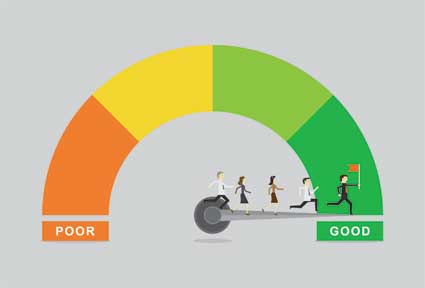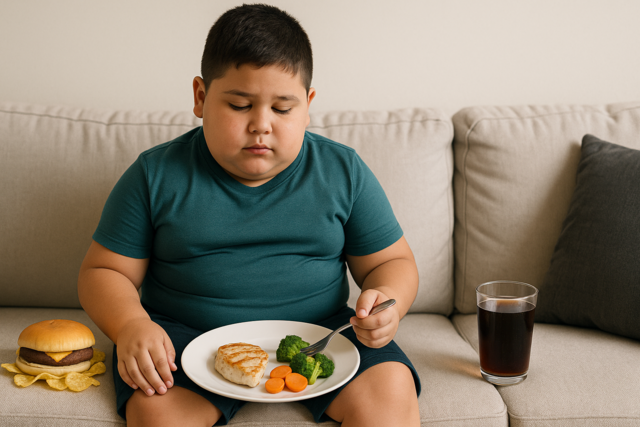The American Psychological Association (APA) has studied parenting practices and has found that while parenting may look different depending on geography, culture, etc., parents generally have three main goals. The first goal is to keep the child safe and healthy. The second goal is to give the child the skills and knowledge necessary to become an adult who contributes to society. The final goal is to pass on the values of the family culture. These values include realms like religious and moral beliefs, as well as desired behavioral outcomes.
While parents may share common goals, there are many different ways that people try to achieve these goals. There are widely varying parenting fads and labels that you may have heard, like tiger mom, attachment parenting, free-range parenting, helicopter parent, snowplow parent, and lawnmower parent to name a few. There are staunch proponents and harsh critics for every type of parenting that you can find. There are many different styles, options, and opinions when it comes to raising children. In this lesson, we will simplify them a bit by focusing on just four styles that have been identified and analyzed by researchers.
Parenting is complex and varied. There is no "correct" way to parent that works for every family. This lesson does not seek to deem right and wrong parenting practices but will give an overview of four broad parenting styles in order to increase understanding and inform parental decision-making.
Child development researchers have identified four general parenting styles. They are, as mentioned, authoritative, authoritarian, permissive, and uninvolved. We will cover the characteristics, benefits, and drawbacks of each style here, but it is important to remember that a person can certainly have characteristics of multiple categories. It is also possible to change parenting styles if that is something you wish to do.
Each of the following four styles is defined in relation to levels of both control and emotional availability. Control deals with rules, boundaries, discipline, expectations, etc. Emotional availability or unavailability describes how a parent connects with the child on a relational level. The mix of these two factors is what creates different styles.
Authoritative parenting is characterized by emotional warmth and strong boundaries. These parents have high expectations for their children but not necessarily just in performance-based areas like school. They expect a lot from their children in terms of behavior, maturity, helpfulness, etc. These children are expected to not only do their best in school and extracurricular activities but also to do it while being polite and kind. Authoritative parents create reasonable rules and stick to them firmly. However, doing so with emotional warmth means that any consequences are reasonable and that rules and discipline are administered with love and respect. This means that there is room for discussion when it comes to rules and consequences. An authoritative parent will not simply dole out punishment when a rule is broken. Rather, they will make time to sit with the child, talk through their thoughts and feelings, and come up with a plan to improve the outcome for next time.
Authoritative parents often use natural consequences, meaning that the consequence logically follows from the offense. For example, if a child is not being careful and spills something on the carpet, the consequence will be that they have to clean it up themself. This is a firm yet fair and logical consequence for the offense. Authoritative parents will consistently enforce rules like this. Using the example of the spill, the child will soon connect the rule of being careful with food and the consequence of cleaning up after themself if they are not careful. The child is able to make mistakes without shame because their parents are emotionally warm, but they will learn to be careful because they do not want to constantly clean up after themself.
The authoritative parenting style requires the time to invest in developing strong discipline techniques and the energy to remain consistent in warmth and firmness. The time and energy required can be an insurmountable challenge due to certain outside factors like parental depression or stress about things like money. Small steps like reward systems or taking the time to explain the reasoning behind important family rules can go a long way in establishing this type of relationship.
Authoritative parenting is difficult, emotional, and a time investment but the reward for this parental investment is that this style is connected to qualities like self-control, increased assertiveness, and emotional maturity in the children. Children of authoritative parents are raised to voice their feelings appropriately and to have the confidence to try to solve their own problems. Of course, the children of authoritative parents are not perfect but they are raised in an environment that allows them to make mistakes and learn from them while knowing that they have the unwavering love and support of their parents.
Authoritarian
While authoritative parents are both highly emotionally warm and highly disciplined, authoritarian parents use high discipline and control without the warmth. These parents are more focused on control than on the development of the whole child. Like the authoritative parents, they have high expectations but they're coupled with inflexibility, frequent and/or harsh discipline, and little to no room for negotiations between parent and child. If a child of an authoritarian parent accidentally spills their milk, they may be spanked and sent to their room. The focus here is on punishment rather than the discipline that teaches a child the "why" behind certain rules. The child may take great care not to spill the milk next time out of fear but probably has not learned the bigger lesson about why we should be careful and avoid making messes, wasting food, etc.
Authoritarian parenting is also characterized by ruling with an iron fist and expecting children to follow rules without any opportunity for input or explanation. Due to this type of thinking, the children of authoritarian parents begin to feel that their opinions and feelings do not matter. They are also not given the opportunity to learn how to solve problems or overcome challenges. The emphasis is placed so heavily on conforming to expectations that the natural trial-and-error pattern is interrupted. These children learn how to avoid getting in trouble but instead of improved behavior, they may just become good at lying or concealing undesirable conduct. Due to this, they may not learn how to actually navigate more complicated issues.
Not surprisingly, this type of parenting has been linked to aggressive and antisocial behavior in children. It has also been suggested that authoritarian parenting can be connected to anxiety in children. It is thought that a child's early curiosity about their environment might be squelched by a parent who is overly controlling or focused on punishment and obedience. Time to explore freely is necessary to allow a child to develop competence and confidence and to eventually become an autonomous adult. Authoritarian parents may be so focused on obedience that they do not allow their children enough independence to make mistakes. The children may turn out to be high-achieving in areas like academics but without opportunity for personal and emotional growth, a child may eventually feel anxious and as research suggests, maybe even depressed.
The opposite of authoritarian parents are the permissive parents. Instead of the low warmth and high control that characterized authoritarian parents, the permissive parents have lots of warmth paired with little control. These parents have low expectations for their children and generally do not ask much of them. Instead of acting as an adult who is guiding and teaching the child, permissive parents prefer to act more like friends. These parents may have a warm, communicative relationship with a child but they simply listen and do not actively encourage improved behavior. They may treat their children as equal to themselves, giving their children a voice that carries the same weight as an adult. If the child of a permissive parent was being negligent and spilled food on the carpet, the parent might laugh it off and clean up the mess for the child. This permissive parent is being nurturing and emotionally warm toward the child but is not teaching the child anything in this case. The child will continue to not be careful with their food because they know that it doesn't matter either way. If they spill, someone will come clean it up for them and there will be no negative emotional responses.
Permissive parents are emotionally warm and loving but their lack of rules, discipline, and follow through with their children has been found to have some consequences later in the children's lives. This type of parenting can cause health problems due to the lack of discipline surrounding the formation of healthy habits and routines. For example, the child of permissive parents is more likely to suffer from problems like obesity because permissive parents likely do not create boundaries around what and when to eat. A permissive parent would be likely to buy the child anything they ask for at the grocery store and allow them to eat it whenever they want. Permissive parents also may not enforce regular hygiene routines like bathing and brushing teeth. A child who is not required to brush or floss regularly is more likely to end up with dental cavities. Additionally, children of permissive parents tend to not do well in terms of academic achievement and they also lack self-control. They have also been found to be bossy, impulsive, and socially incompetent.
Uninvolved
The final type of parent, the uninvolved parent, is neither warm nor controlling. They appear to be uninterested in guiding and teaching their child or children. If a child spills food on the carpet due to carelessness, the uninvolved parent may not even react. The child will not receive assurance that mistakes happen or a hug to remind them that they are loved even when they are messy. They will also not receive a consequence to tell them that they should be careful with food so that they do not spill it. Uninvolved parents likely do not know what is happening in the child's school or social life and do not make an effort to interact. They generally leave the child to raise themself, offering little in the way of help or guidance.
A parent may fall into this parenting style for a variety of reasons. Mental health problems like depression or addiction can render a parent unable to offer any emotional presence or to set any rules or boundaries. Socioeconomic status can also affect a person's ability to parent. If the parents feel that they are drowning in the everyday problems of life like managing money, they may become unable to focus on their children.
Regardless of the reason behind it, this type of parenting is particularly dangerous because young children thrive on emotional warmth and love from caretakers, and they also desperately need rules and boundaries. Because they are not receiving what their brains crave, the children of uninvolved parents can become depressed or can develop behavioral issues. These children have been found to have trouble coping and they may display hostile behavior.
Conclusion
There is not a clear, exact, universal guide for how to best parent a child. But child development research has found that the basics of authoritative parenting yield the most positive results for children. While there are children raised in all sorts of situations who turn out to be healthy, happy adults, research has found that those who are raised with the authoritative parents are more likely to be happy, fulfilled, and able to solve problems effectively.
The purpose of this lesson is to inform so parents are able to make sound, research-based decisions when it comes to raising their children. If you find that you may have some parenting characteristics that you would like to change, know that it is never too late. Positive change is possible at any stage of your child's life.























